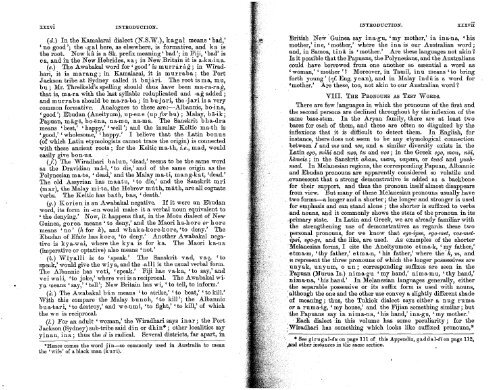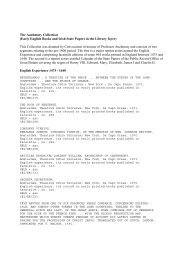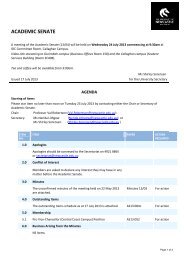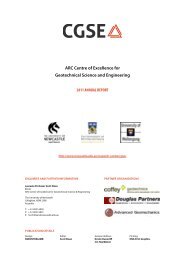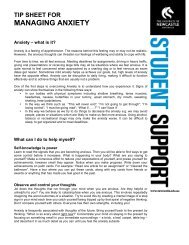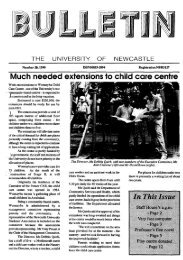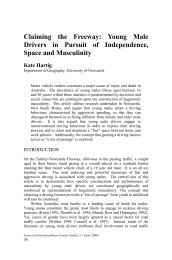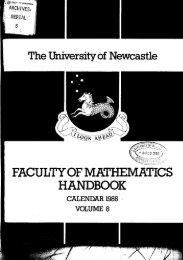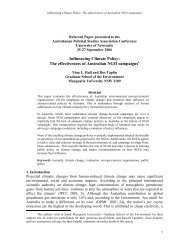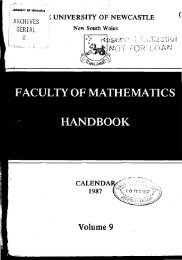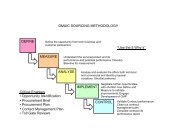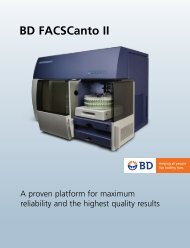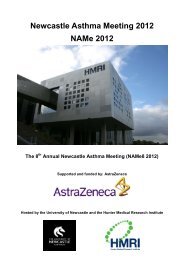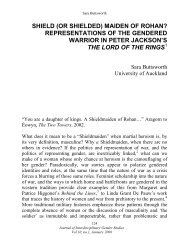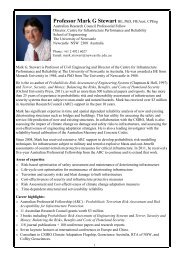sxsvi INTBODGCTION. (d.) In the Kamalarai dialect (N.S.W.), kngal means ' bad,' ' no good '; the -g a1 here, as elsewhere, is formative, and k a is the root. Now kb is a Sk. prefix meaning ' bad '; in Fiji, 'bad' is ca, and in the New Hebrides, sa; in New Britain it is a-ka-ina. (e.) The Awabakal word for ' good ' is murr iir ii g ; in Wirad- hari, it is marang; in Kamalarai, it is murraba; the Port Jackson tribe at Sydney called it bujiri. The root is ma, mu, bn ; Mr. Threlkeld's spelling should thus have been ma-ra-rak, that is, m a-ra with the last syllable reduplicated and -a g added ; and murraba should be ma-ra-la ; in bujari, the -jari is a very common formative. Analogues to these are:--Albannic, b o-i na, ' good '; Ebudan (Aneityum), upen e (up for bu) ; Malay, b 5-i k ; Papuan, m zge, bo-ana, na-m o, na-ma. The Sanskrit b ha-dra means 'best,' ' happy,' ' well '; and the insular Keltic ma-th is 'good,' 'wholesome,' 'happy.' I believe that the Latin bonus (<strong>of</strong> which Latin etymologists cannot trace the origin) is connected with these ancient roots; for the Keltic ma-th, i.e., mad, would easily give bon-us. . (J) The Wiradhari balun, 'dead,' seems to be the same word as the Dravidian mu, 'to die,' and <strong>of</strong> the same origin as the Polynesian ma-te, ' dead,' and the Malay ma-ti, mang-kat, 'dead.' The old Assyrian has maatu, 'to die,' and the Sanskrit mri (mar), the Malay mi-ta, the Hebrew muth, math, are all cognate verbs. The Keltic has bath, bas, ' death.' (g.) .Korien is an Awabakal negative. If it were an Ebudail word, its form in -en would make it a verbal noun equivalent to ' the denying.' Now, it happens that, in the Notu dialect <strong>of</strong> New Guinea, gorea means ' to deny,' and the Maori ha-hore or hore means 'no' (h for k), and whaka-kore-kore,'to deny.' The Ebudan <strong>of</strong> Efate has koro, 'to deny.' Another Awabakal nega- tive is k y a-wai, where the k y a is for ka. The Maori ka-ua (imperative or optative) also means ' not.' (ri.),Wiyalli is to 'speak.' The Sanskrit vad, vaq, 'to sperk, would give the wiy a, and the -alli is the usual verbal form. Thc Albannic has veti, 'speak.' Fiji has va-ka, 'to say,' and vei wali, 'to joke,' where vei is a reciprocal. The Awabakal wi- ya means ' say,' ' tell'; New Britain has mi, ' to tell, to inform.' (;c.) The Awal~akal b6n means 'to strike,' ' to beat,' ' to kill.' With this compare the Malay bunoh, 'to kill '; the Albannic bua-tari, 'to destroy,' and we-umi, 'to fight,' 'to kill,' <strong>of</strong> which the we is reciprocal. (I.) For an adult ' woman,' the Viradhari says inar ; the Port Jackson (Sydney) sub-tribe said din or dhin* ; other localities say y inan, ina ; thus the cZ is radical. Several districts, far apart, in 'Hence comes the word jin-so commonly used in Australia to mean the 'wife' <strong>of</strong> a black man (kuri). m-TRODUCTION. xsxvii British New ' Guinea say ina-gn, ' my mother,' ia in a-na, ' his mother,' ine, 'mother,' where the ina is our Australian word; and, in Samoa, tins is 'mother.' Are these languages not akin? Is it possible that the Papuans, the Polynesiaiis, and the Australians could have borrowed from one another so essential a word as ' woman,' ' mother ' 1 DIoreover, in Tamil, f nu means ' to bring forth young ' ( cj Eng y ean), and in Malay ind ii is a word for . 'mother.' Are these, too, not akin to our Australian word 1 VIII. THE PRONOUNS AS TEST WORDS. There are few languages in which the pronouns <strong>of</strong> the first and the second persons are decIinecI throughout by the inflexion <strong>of</strong> the same base-stem. In the Aryan family, there are at least two bases for each <strong>of</strong> them, and these are <strong>of</strong>ten so disguised by the inflexions that it is di%cult to detect them. In English, for instance, there does not seem to be any etymological connection between I and 9x.e and we, and a similar diversity exists in the ronoun itself almost disappears a Is.) ni ma-gu ' my hand,' ninla-mu, ' thy hand,' hand.' In Melanesian languages generally, either possessive or its suffix form is used with nouns,
and the Awabakal has a 'conjoined dual'; yet they all have long forms <strong>of</strong> the first and the second pronouns to 11e used alone or for the sake <strong>of</strong> emphasis, wl-llile other short forins always go with a verb as its subject. I add a list <strong>of</strong> the pronouns found in the whole <strong>of</strong> the Australian, Papuan, and Melanesian regions, so far as they are as yet known to linguists ; for, although I shall make only a lhitecl use <strong>of</strong> this list at present, yet it may be useful to students <strong>of</strong> language in Brit& and elsewhere, esl~ecially as the sources from which I have colnpilecl it are not generally accessible. The Awabakal pronouns are :- 8ilzg~~Zccr. D zml. Plzwccl. 1st.-Gatoa, bag, emmo-ug, tia Bali, gali 2nd.-Ginto, bi, .- &iro-u.c - Bula 3rd. ~asc-Niu~voa, noa 'i ko-ug, b6n &d. Fern.-Boun-toa, boun- ' " ( Buloara noun 1 Geen, gear-un Nura Bara For the purpose <strong>of</strong> comparison, I give the forms <strong>of</strong> these two pronouns as founcl in other parts <strong>of</strong> Australia :- New Sozcth Wales. 1st Pronoun. Xing.--Gaiya, &a, &an, gai, iya, gata, gain& ; gaclthu, nathu, nathuna, athu, aclclu, thu, athol ; mi, miiia, mitua, motto; imigdu, ganna, nacna ; &era ; maiyai ; iaka ; giamba ; gulagi. 2nd Pronoun. Sing.-Gind-a, (-u), y!ncl-a, (-u), ind-a, (-e, -0, -u), nind-a, (-u) ; idno ; numba; woncla; nmdrua, natrua ; yincligi, indiga ; youra; beai, bubla ; wiya, walbo ; gin ; imiba ; gindigug ; nagdn ; gnlaga. 3rd Pro. ; Si~ifzg.-Genna, noa, niuoa ; P1zc.-Garma, bara. Victoria. 1 st Pronoun. Xing.-Gaddo, nzdtha, gio, gaiu, gat&-; waan, aan, winnak; yatti, yanga, yandoi, nitte ; naik, nai6, niak, ge, ken; wokok, yer- romik, wolhyek, tiarmek ; biirclop. 2nd Pronoun. Xing.-Gind-a, (-e, -i,- o, -u): gincldk; nind-i, (-e); ginna, ginya; nin, nindo, ninan, niam, winnin; yerrowin; tiarmin; waar, wsanyen; wolanig ; nutuk, ut&; mirambina; gulum; yerally. 3rd Pro.; ~'ing.-Nunthi, munniger, kiga; PZu. Murra-milla,kinyet. INTRODUCTION. xsxis Yusnzania. 1st Pro.; Sing.-&ha, mana, men% 2nd Pro. ; Silzg.-Nina. Central and Sozcth Austmzicc. I st Pronoun. Sing.-Gai, gann-a, (-i), ginyi, onye, yiga, yinna, ini, unnyi; kappa, (-u), gasp, appa, aupa; gatto, attho, attu, actu, althu ; g66z ; ti ; iyie. 2ncl Pronoun. Sing.-Gina, nia, nini, nina, yina; gimba, imba, umpu, unga, unni, yinyi ; nindo, yundo ; ticini, yiclni, y unclru, andru, gunclru ; wuru, nuru, nuni ; 6;nna. 3rd Pro.; Sing.-Nulia, kitye, pa, panna, ninni ;. Plze.-Kinna(r), ka(r), pa(r)na, nana, ya(r)clna. Western Australia. 1st Pronoun. Sing.-Gatha, gatuko, natto, gadjo, ajjo, &~llya, guanga, gallga, gana, gonya, nanya, nunna ; gal-n~i, keit ; gi, kids, gika, gig. 2nd Pronoun. Sing.-Ginda, ginna, yinda, yinna, nini, nillya, niya; &nd~zk, yinnuk, nondnk, nundu, nhcla, nnnali; janna. Pl~sral-Nurd. 3rd Pro.; Sing.-Bal ; Nu.-Balgun, bullalel. 1st Prgnoun. Sing.-Gaia, gia, gio, nip; Cansa, ocgya! un6a; nutta, uttllu, uda; yundu, giba, ipa; nia, la, niu, lu, iuma, yo; bhko; kuronya ; gung~. 2nd Pronoun. Sing.--Nincla, inda, imba; ~incla, (-i), ind-a, (-i); yuldna, ~ ~lldu, indu; innu, iu ; inlcnu, ingowa, enowa, nowa ; n~ho ; nayon ; nomh ; y~xnur ; tini ; mologa. rd Pro.; Sing.-Ugda, unda ; Plrc-Sanna. ith tliese Australian Pronouns, coinpare the DRAVIDIAX PROXOUSS. 1st Pronoun ng.-Tamil-Nib, y&n, &n, en ; Canarese-Gn, ybn, n&, aG11u, en, bn-e; Tulu-ybn, yen, e ; Malayblam-Glam, Ein, 611, en, ena, eni, ini; Telugu-n&nu, n6, &nu, 6, nil, nu, ni ; Tuda-Gn, en, eni, ini ; Kata-he, en, eni, hi ; GGnd-ann&, ni, $11, rn ; Ku- $nu, na, in, e; R&jmah&l-en ; Orkon-enan. 1u.-M6mu, amGt, .t,lin, ;.lm, imu, 11;im, nbngal, nivu, Gvu.
- Page 1 and 2: AN AUSTRALIAN LANGUAGE AS SPOKEN BY
- Page 3 and 4: - INTRODUCTION CONTENTS. . .. . . .
- Page 5 and 6: X THE ILLUSTRATIONS. The New Englan
- Page 7 and 8: H~V IRTEODUCTION. WTBODUCTIOR. xv i
- Page 9 and 10: sriii IHTPODOCTIOX. It mar possibly
- Page 11 and 12: xsii IBTBODUCTION. carried to Austr
- Page 13 and 14: xxvi IPI-TBODUCTION. ha~e noticed i
- Page 15 and 16: XSX IXTEODUCTION. ' tvo ' or ' seco
- Page 17: I have no cloubt that this is the s
- Page 21 and 22: degree of error, ~vhicll aEects als
- Page 23 and 24: dPi INTBODCCTION. the numeral ' ten
- Page 26 and 27: Xi 161RODUCTIO7S. use, the Latin su
- Page 28 and 29: lri IHTI~ODCCTION. which they are j
- Page 30 and 31: 11 ISTBODGCTIOS. the Kelts, a ~ ery
- Page 32 and 33: ' fire.' They hare no circuiucision
- Page 34 and 35: CVJIPREHESDIR'U THE PItISCIPLES AS1
- Page 36 and 37: Jlaring resicled for manr years in
- Page 38 and 39: Cudgel, Gammon, Gibber, Gummy, Goon
- Page 40 and 41: The essential vorrels are 2, z", 22
- Page 42 and 43: 8 AN AUSTRALIAN L~GVAOE. THE GBIJIJ
- Page 44 and 45: 12 AN AVSTEALIAX LASGCAGE. to the a
- Page 46 and 47: 'n.1-VZ sa-ux ua-pRN soponog { "JON
- Page 48 and 49: RECIPROCAL Pnoao~xs. Gatoa-bo, 'Iln
- Page 51 and 52: OF THE PARTICIPLES. 1. The Pr~senf.
- Page 53 and 54: 30 AN AUSTBILIAW LBSGUAGE. PERAIISS
- Page 55 and 56: Declension of this Verb, 11-11en it
- Page 57 and 58: PARTICIPLES. T. 1. Tiir-bur-rill-iu
- Page 59 and 60: SUBJ'OXCTTTE 3100~. T. 10. Tetti bu
- Page 61 and 62: PREPOSITIONS. Ba, 'of [--deiloting
- Page 63 and 64: %[he+- a curve in its orbit from an
- Page 65 and 66: Kirrin, nz., paill. 11. Kdgka, nz.,
- Page 67 and 68: Bfinmulliko, nz., to rob, to take G
- Page 69 and 70:
62 AN AUSTEALIA~Y LANGUAGE. Tetti-b
- Page 71 and 72:
GG LY AUSTRALIAN LL~YQUAGE. ILLUSTB
- Page 73 and 74:
70 AS AVSTX~LIIN LASGCIGE. ILLGST~A
- Page 75 and 76:
B 6 m mil n b i a b i - t i a ; nr.
- Page 77 and 78:
78 AN AUSTRILIAX LASGUIGE. . ILLEST
- Page 79 and 80:
Tunug unni Turkey-ko-ba; nt., this
- Page 81 and 82:
C [THE ORIGINAL TITLE-PAGE.] 6 A KE
- Page 83 and 84:
AX AUSTRALIAN LISGEAGE. As aborigin
- Page 85 and 86:
AX AUSTRALIA?? LANGUAGE. THE IKEY:
- Page 87 and 88:
9 -4 AN AUSTRALIAN LANGUAGE. The af
- Page 89 and 90:
98 All ATSTBALIAN LANGUAGE. . TIlE
- Page 91 and 92:
[The common root-words of the langu
- Page 93 and 94:
106 AN ATSTRALTAN LAXGUAOE. . SELEC
- Page 95 and 96:
110 AN AUSTRALIAN LANGUAGE. SELECTI
- Page 97 and 98:
114 AX AUSTRALIAYY LANBUAQE. Sectio
- Page 99 and 100:
Xectiolz 3. Palcoai-kan bag n~oron
- Page 101 and 102:
PART IT. -C THE GOSPEL BY ST. LUKE.
- Page 103 and 104:
THE AUTHOR'S PREFACE. IT i3 a matte
- Page 105 and 106:
THE GOSPEL BY LUGE, C. 1. 129 in mi
- Page 107 and 108:
133 AN AUSTRALIAN LANGUAGE. THE GOS
- Page 109 and 110:
136 AX AUSTRALIAN LbNGU-4GE. 15. Ga
- Page 111 and 112:
140 AX AUSTRALIAK LASGUAGE. tabirug
- Page 113 and 114:
144 -4s AUSTRALIAN LANGUAGE. THE GO
- Page 115 and 116:
14s AN 4USTRALIAN LANGGSGE. THE GOS
- Page 117 and 118:
253 AN AUSTRALIAN LANGUAGE. THE GOS
- Page 119 and 120:
156 AN AUSTRALILV LANGUAGE. THE GOS
- Page 121 and 122:
160 AN ilusTRaL1X-T LANGUAGE. THE G
- Page 123 and 124:
164 LY AUSTRALIAN LASGUAGE. THE COS
- Page 125 and 126:
19. Gatuu taraito wiyii, Guki116l11
- Page 127 and 128:
1;" AS bU3TRhLIbf LA-SC;TA(;E. TIIE
- Page 129 and 130:
lifi AX ATSTEALIAS LASGCSGE. THE GO
- Page 131:
113 AX -4CSTG-4L1.$?3 LISGU~~GE. TH
- Page 134 and 135:
186 -4R AUSTR-kLIAN LAXGUAGE. THE G
- Page 136 and 137:
190 -hY AUSTRALIAX L~?~'Gus(~E. THE
- Page 138 and 139:
AN AUSTRALIAN LAFGU-4GE. 35. Gat111
- Page 140 and 141:
LEXICON GOSPEL r \ ~ TO ~ 8111ST ~
- Page 142 and 143:
c1~l~~i.5. / [it. t!:?i.ist. ' il~~
- Page 144 and 145:
204 -45 BTSTEILXAN LA.KGUACE. Eredc
- Page 146 and 147:
aos AS ACSTRZILIAN LLTGCAGE. Galili
- Page 148 and 149:
I
- Page 150 and 151:
314 AX AUSTRALIAX LANGUAGE. THE LES
- Page 152 and 153:
21s -4X AUSTRALIAN LANGUAGE. THE LE
- Page 154 and 155:
222 9.3" A?\' ACSTRALIAR LANGU~GE.
- Page 156 and 157:
936 - - AX AGSTRALI.4X LANGCAGE. AI
- Page 158:
APPENDIX. (4 A SHORT GRA3II~IA.R AN
- Page 161 and 162:
S . A?: ACSTRILIAK LhKC;UA4GE. THE
- Page 163 and 164:
The interrogatives seem to be the c
- Page 165 and 166:
1 6 AN AUSTRALIAN LAFGU.4GE. If it
- Page 168 and 169:
A ma11 calls an altlrr brotket. . .
- Page 170 and 171:
2 6 AN AUSTRALIAN LLYGUAC4F. 2. SEN
- Page 172 and 173:
AX AUSTRALIAN LANGUAGE. PARBD~GX OF
- Page 174 and 175:
AN AUSTRALIAK LAKGUAGE. The demoils
- Page 176 and 177:
3 8 AN AUSTRALIAX LANGUAGE. IUPERAT
- Page 178 and 179:
By-2il~l-l)y-y~~l, palli, yurvunnk.
- Page 180 and 181:
AN AVSTRALIAN LANGPAGE. (From Dr. M
- Page 182 and 183:
50 rn AUSTRALUN LANGUAGE. A child-g
- Page 184 and 185:
I?~tperatives are :- Come here-kqma
- Page 186 and 187:
THE WIUDHaEI DULECT. 59 The example
- Page 188:
63 AN AUSTRALIAN LANGUAGE. The conj
- Page 191 and 192:
6 8 A?? AUSTRALIAN LANGUAGE. Dzcnl
- Page 193 and 194:
73 AN AUSTRALIAN LANGUAGE. Bangalla
- Page 195 and 196:
7 6 AN AUSTRALIAN LANGUAGE. Bunbabi
- Page 197 and 198:
80 AN AUSTRALIAN L-LVGUAGE. THE VIl
- Page 199 and 200:
8 4 AN AUSTRALIAN LAXGUAGE. Gambung
- Page 201 and 202:
I8 AN AUSTRALIAN LAXGUAGE. Gulgarra
- Page 203 and 204:
94 AX AGSTRALI-4N LASGUAGE. Kgarran
- Page 205 and 206:
96 AN AUSTRALIAN LASGUAGE. Karrari-
- Page 207 and 208:
100 AN AUSTRALIAN LANGUAGE. JIuogam
- Page 210 and 211:
106 AX AUSTRALIAN LAIYOUAGE. THE WI
- Page 212 and 213:
110 AN AUSTRALIAN LANGUAGE. [The sp
- Page 214 and 215:
114 AX AUSTRALIAN LAXGUAGE. n'gindu
- Page 216 and 217:
118 AN AUSTRALIAN LLBGUAGE. Nguigar
- Page 218 and 219:
P;giannigin Babbin, ngindu murrubir
- Page 220 and 221:
1. Yanoa wal bi tarai Eloi kaki yik
- Page 222 and 223:
G. Bdain buba murrign, buba wuncla&
- Page 224 and 225:
132 AX AUSTRALIAN LANGUAGE. FIRST S
- Page 226 and 227:
13G AN AUSTRALIAN LAKQUAGE. 7. 9 u-
- Page 228 and 229:
Won-nayn uiinoa yeterra? Trelkeld y
- Page 230 and 231:
Wea, be unne man-nun? man-nun bang;
- Page 232:
148 rn AUSTRALIAN LWBUAGE. Nun-form


